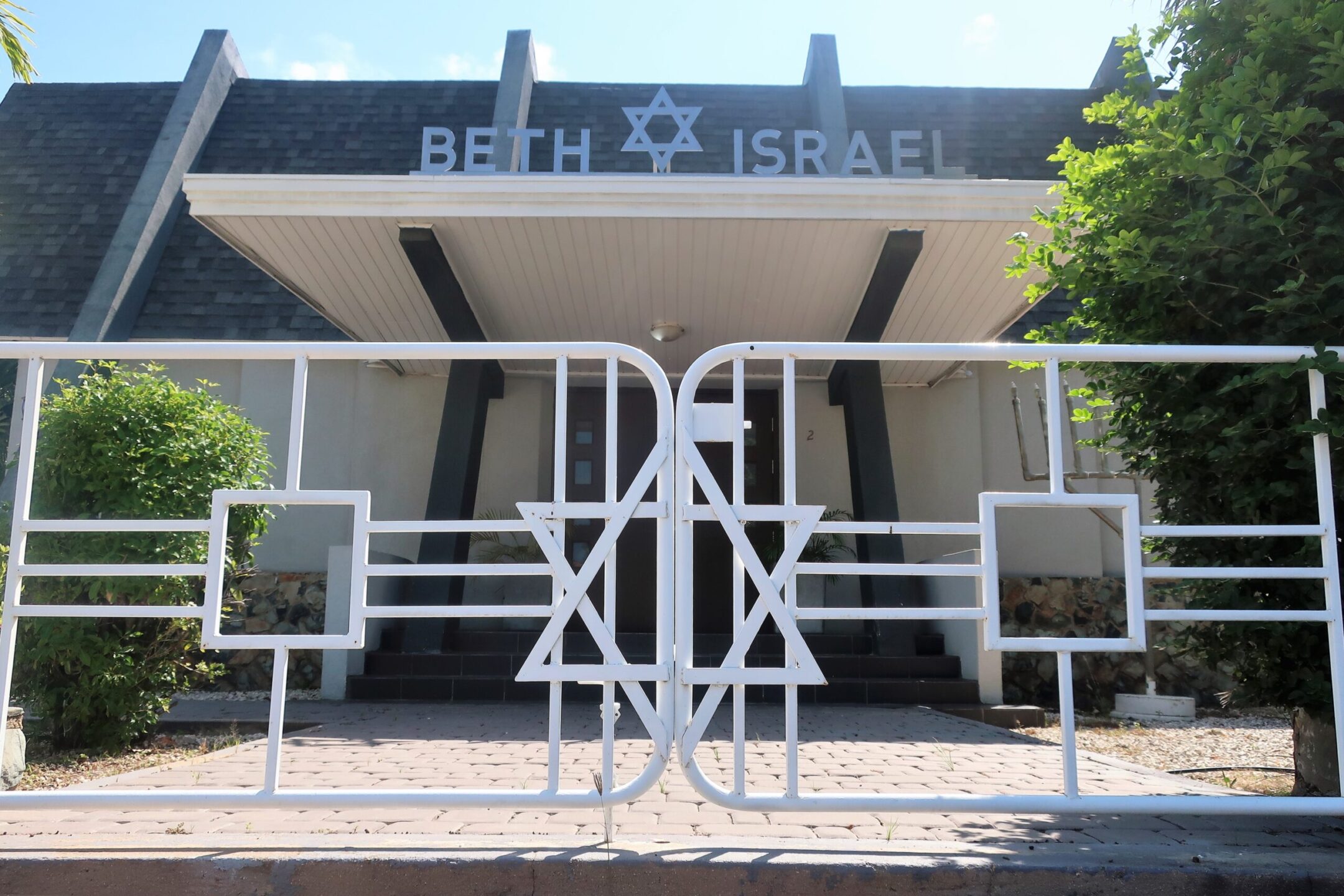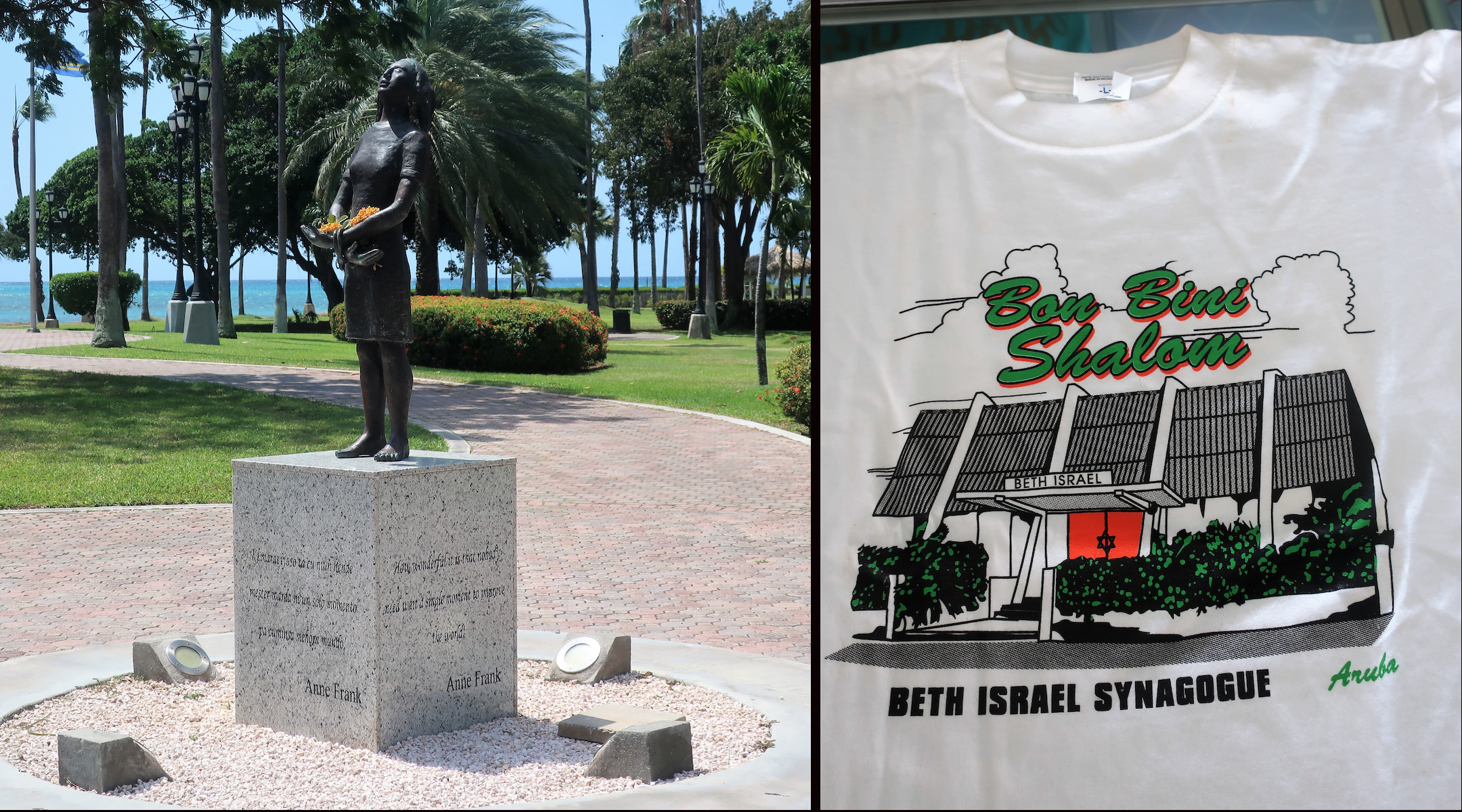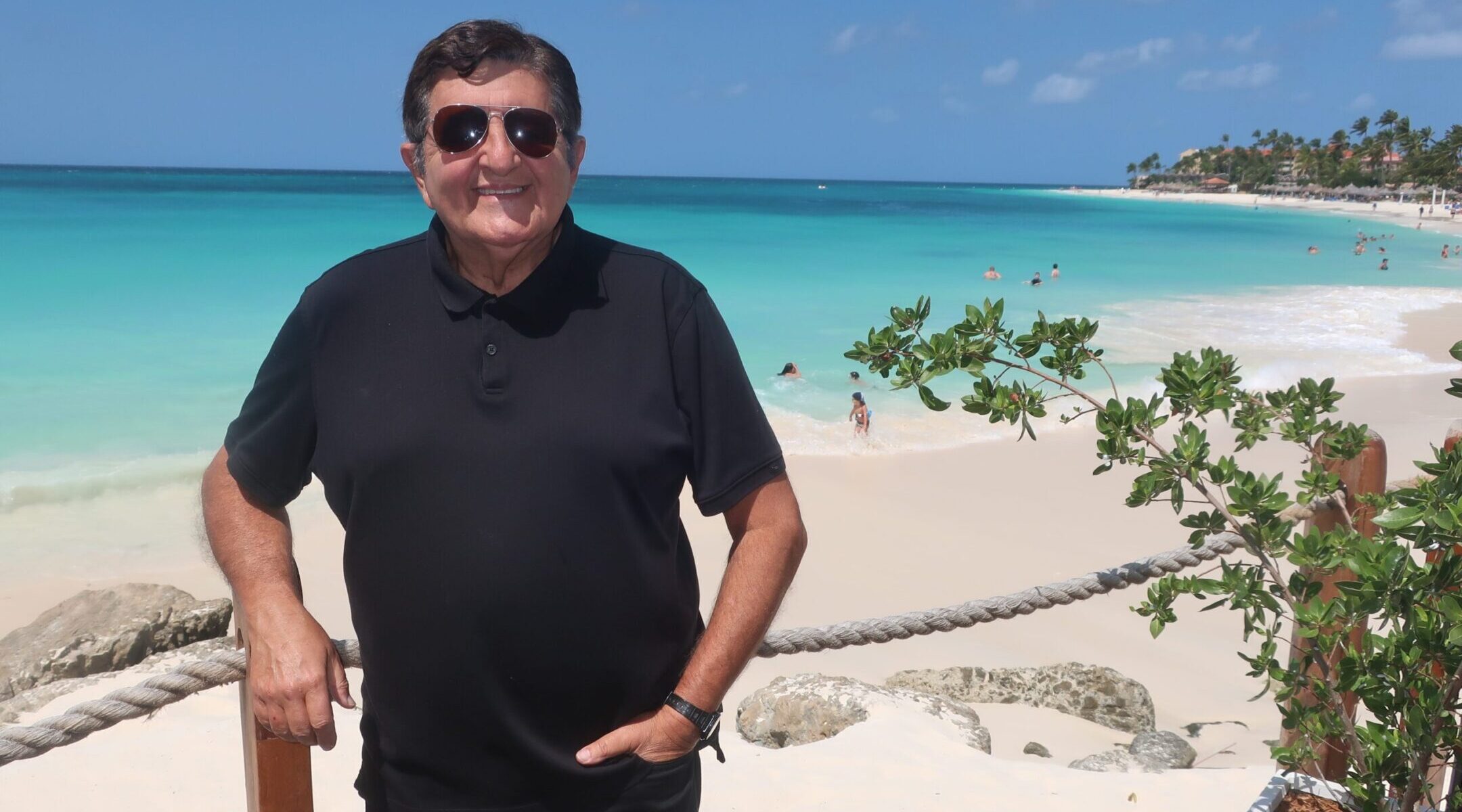ORANJESTAD, Aruba (JTA) — One of Alberto Zeilicovich’s first duties as a Conservative rabbi was to officiate the funeral of a 20-year-old congregant, murdered by a drug cartel while enjoying a night out with his friends at a disco.
It was the late 1980s in Medellin, Colombia, and Zeilicovich had entered the pulpit at the height of the Colombian drug wars and the reign of notorious kingpin Pablo Escobar. Two years later, he would bury another member of the congregation murdered by the cartel.
“We felt fear,” Zeilicovich, who goes by Baruch, said about his six years in Medellin. “The president of the congregation told me you cannot walk on Shabbos to the synagogue. ‘You should come with a car.’ I asked, ‘Are you afraid someone is going to kidnap me?’ He said, ‘No, I am afraid somebody will kill you.’”
To give him a break, a congregant sent Zeilicovich on a trip to Aruba and Curacao, islands where, he recalled, he could “unplug a little bit from a situation that was very dangerous.”
That 1990 trip would ultimately result in the other bookend of his career: Zeilicovich recently came out of retirement to begin a three-year contract as the rabbi of Beth Israel Synagogue, a small synagogue on the Dutch island of Aruba in the southern Caribbean Sea. He had visited the island at least once a year for the past 32 years.

Temple Beth Israel, a Conservative-style synagogue in Oranjestad, Aruba, was consecrated in 1962. (Dan Fellner)
“First, the people are very friendly,” he says of Aruba, which has a population of about 100,000 and is officially called a “constituent country” of the Kingdom of the Netherlands. “Second, it’s a very safe place. And third, the island is a paradise. Everything is so beautiful.”
The synagogue, located in the island’s capital city of Oranjestad, is not affiliated with any movement of Judaism but operates in the style of the egalitarian Conservative movement. It is just a block from one of Aruba’s signature white-sand beaches and a five-minute drive to Eagle Beach, perhaps its most famous.
While Zeilicovich no longer needs armed security guards to accompany him to synagogue as he did in Medellin, he still brings to the pulpit the difficult life lessons he learned during those tumultuous years in Colombia.
“Being in Medellin made me realize how a rabbi should teach the congregation about what are the most important things in life,” he says. “That shaped me in understanding what the role of a rabbi should be — a facilitator for everybody to be a better Jew, a better person.”
Zeilicovich, who speaks five languages, was born and raised in Buenos Aires, Argentina, where he experienced antisemitism and life under an oppressive military regime. He studied at a rabbinical seminary in Buenos Aires before completing his ordination at the Schechter Institute of Jewish Studies in Jerusalem.
Following his six years in Medellin, Zeilicovich moved to a synagogue in Bogota, the capital city of Colombia, before rabbinical stints in Puerto Rico, Texas and most recently New Jersey, where he announced his retirement from Temple Beth Sholom in Fair Lawn in late 2020.
Zeilicovich and his wife Graciela had moved to Israel when he got a phone call from Daniel Kripper, a friend and fellow Argentine who was retiring as the rabbi of Aruba’s Beth Israel.
“He called me and said, ‘Baruch, what are you doing in Israel?’ I said I’m going to the beach. He said, ‘Why don’t you come to the beach in Aruba where you can have a congregation again?’ And I said, ‘Why not?’”
According to Richenella Wever, a member of the Beth Israel board, Zeilicovich has been a good fit with the synagogue’s diverse congregation. “His way of thinking, teaching and his ability to connect the Torah with daily life is amazing,” she said.
Jewish life in Aruba dates back to the 16th century, when immigrants arrived from the Netherlands and Portugal. In 1754, Moses Solomon Levie Maduro, who came from a prominent Portuguese Jewish family in Curacao, settled in Aruba, where he founded the Aruba branch of the Dutch West Indies Company. Maduro paved the way for more immigrants but the island’s Jewish population has always remained small. It’s now about 100.
In 1956, the Dutch Kingdom officially recognized the Jewish community of Aruba; Beth Israel was consecrated six years later. The synagogue calls itself a “Conservative egalitarian temple keeping Sephardic and Ashkenazic traditions.” In addition to Beth Israel, there is a Chabad chapter on the island that opened in 2013.
With a membership of just 50 local families and a few dozen overseas residents, Beth Israel has limited resources. A Dutch law stipulating that the salaries of clergy in Holland’s overseas territories be paid by the government helps the synagogue remain solvent.
“This is really unique,” says Zeilicovich. “You can be a minister of an evangelical church, a Roman Catholic priest, an imam from a mosque or a rabbi from a synagogue — the government pays the salary.
“When I want to brag about myself, I say I am an employee of the Crown of Holland,” he added with a laugh.
Zeilicovich says the Aruban government has been highly supportive of the Jewish community, even erecting a life-sized bronze statue in 2010 of Anne Frank in Queen Wilhelmina Park in downtown Oranjestad.

A bronze statue of Anne Frank stands in the Queen Wilhelmina Park in downtown Oranjestad, Aruba, at left; at right, a T-shirt for sale in the Beth Israel gift shop in Aruba reads “Bon Bini,” meaning “welcome” in Papiamento, the local language. (Dan Fellner)
“That means they have respect for the Jewish community,” he says. “And they are very sympathetic with us about the Holocaust.”
Zeilicovich says a typical Friday night Shabbat service attracts about 20 people, about one-third of whom are tourists. Some arrive on the many cruise ships that dock just a mile away from the synagogue; others stay at condos or at one of Aruba’s posh resorts.
If there aren’t enough worshippers for a prayer quorum of 10 on Saturday mornings, a Torah study group meets instead. The synagogue’s small sanctuary can hold 60 worshippers, and is normally full for the High Holidays of Rosh Hashanah and Yom Kippur each fall.
“We are a friendly, welcoming congregation,” Zeilicovich says. “We are family — mishpocha. When you come here, we try to make you feel that way.”
Indeed, a popular item in the synagogue’s small gift shop is a T-shirt imprinted with the words “Bon Bini Shalom.” Bon Bini means “welcome” in Papiamento, the Portuguese-based Creole language spoken in the Dutch Caribbean.
Zeilicovich says one of his priorities as the new rabbi is to improve the synagogue’s marketing efforts and revamp its website. He adds that Aruba’s Jewish community often is overshadowed by Curacao, its Dutch neighbor to the east that is home to the oldest synagogue in continuous use in the Americas.
“We are behind in marketing,” he said. “And we understand we are missing a huge opportunity.”
For now, Zeilicovich is enjoying his time in Aruba and can’t help but marvel at how his life has changed since his days as a rabbi in Medellin when just getting from his home to the synagogue was a dangerous ordeal.
“I think about that and look to heaven and say, ‘God, thank you.'”
JTA has documented Jewish history in real-time for over a century. Keep our journalism strong by joining us in supporting independent, award-winning reporting.






